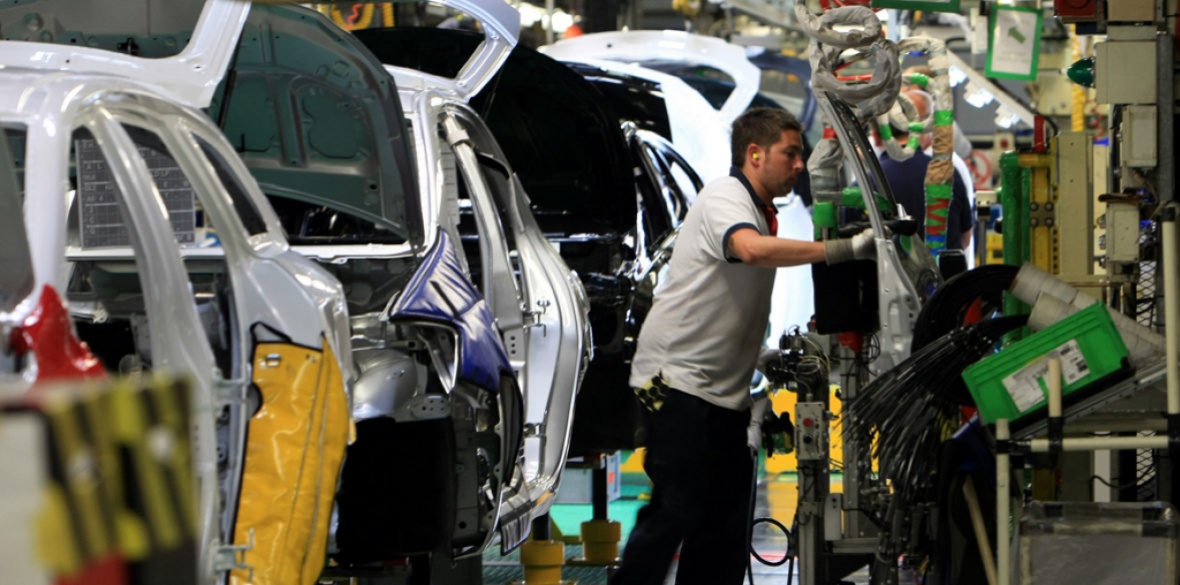This is the last article you can read this month
You can read more article this month
You can read more articles this month
Sorry your limit is up for this month
Reset on:
Please help support the Morning Star by subscribing here
THE Labour Party’s manifesto for the 2017 general election contained many provisions for radical labour law reform.
At the heart of these proposals was the plan to introduce a new Ministry of Labour.
This is a recommendation that hit the spot, for rarely can the plan to create a new government department have met with such enthusiasm and expectation.
Although first proposed by the Institute of Employment Rights in 2013 and again in 2016, the one thing that unites proposals for labour law reform now emerging from various places throughout the labour movement is the consensus that we need such a department, with IER ideas mimicked recently by several other think tanks.
There is of course nothing new in the proposal that we should have a new department to represent the interests of workers. A Ministry of Labour was first established by legislation in this country in 1916 and continued in operation for much of the 20th century, with a minister of Cabinet rank during that time.
Assuming new responsibilities after the World War II, the ministry underwent various iterations as the Ministry of Labour and National Service, then the Ministry of Labour again, then the Department of Employment and Productivity, and then simply the Department of Employment, before being abolished by the Thatcher government.
As a constitutional matter, the creation of a new department is now much more straightforward, with legal powers available to the prime minister in the Ministers of the Crown Act 1975.
Indeed, it is a simple process that can be done by delegated legislation under the 1975 Act, avoiding the need in the modern era for a specific Act of Parliament.
The major issues are thus political not legal, notably the personality of the person appointed as secretary of state and the functions that would be transferred to the new department.
To be effective a new ministry needs to be led by a strong minister and be at the centre of a wide range of activities, working closely with a number of other departments.
The purpose of the new minister will be to give voice to workers at the highest level of government. It is no longer acceptable that 31 million workers do not have a voice in government, when business has the huge behemoth which is the Department of Business, Energy and Industrial Strategy (BEIS).
And it is no longer acceptable that the workers’ interests should be represented by a junior minister in BEIS, with the minister’s priorities determined by business interests rather than the interests of workers and trade unions.
The secretary of state of labour should have his or her own department and once again his or her own seat at the Cabinet table.
As a voice of workers in government, it is expected that there will be a transfer to the labour ministry of the various functions currently performed by a number of existing departments.
These include most obviously BEIS (employment rights and trade union rights), as well as the Foreign Office (international labour standards).
But it should also include the labour functions of the Home Office (dealing with migrant workers), the Department of Education (dealing with skills and training), and the DWP (occupational pensions). It would also involve a transfer of health and safety at work, as well as responsibility for public bodies such as Acas.
Central to the work of a new ministry, however, must be the oversight of the expansion of the trade union role as a principal lever for social, economic and political transformation.
It is hard to exaggerate the role or responsibility of the department in this respect, the aim being to embed the voice of organised labour throughout the economy.
This means the Ministry of Labour taking the lead and being given the powers to expand the coverage of sector-wide collective bargaining.
Every worker must be protected by a collective agreement negotiated at sector level to raise the coverage of collective agreements to something approaching its pre-Thatcher norm in excess of 80 per cent of the workforce.
But in addition to enhancing the integration of trade unions at sectoral level, the other principal role for the Ministry of Labour will be to enhance their penetration at company level, with a greatly simplified trade union recognition procedure to ensure that the workers’ voice is heard from the cloakroom to the boardroom in every enterprise.
This of course is only the start. The Ministry of Labour will be a major instrument for radical change, not only in terms of trade union engagement and greatly enhanced working conditions but also in re-establishing collective bargaining as the principal form of workplace regulation. The aim should be more power, less law.
So the proposal is not just for a new government department with a catchy title. It is for a ministry with a mission to develop and implement the agenda for workers’ rights, a ministry to empower trade unions and their members and a ministry by whose labours the working lives and the prospects generally of the people of this country will be transformed.
Keith Ewing is president of the Institute of Employment Rights. He will be discussing a new Ministry of Labour at a forthcoming IER event, Future of Labour Law: Progressive Rights Under a Progressive Government tomorrow at Unite the Union, London from 9.30am-3pm. For more information visit www.ier.org.uk.
The IER manifesto book is on offer to Morning Star readers for £5 a copy (reduced from £20). Contact [email protected] to place an order.










